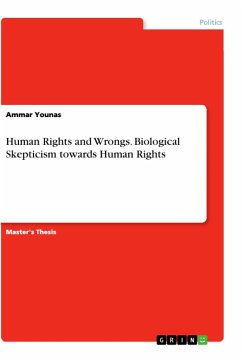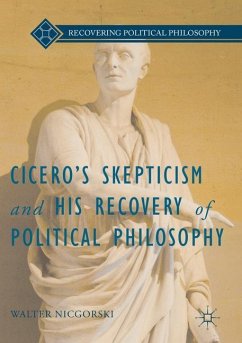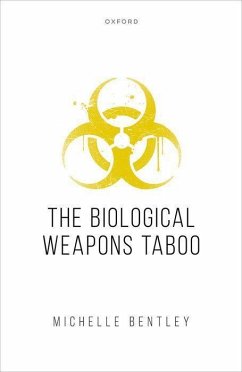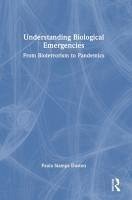
Human Rights and Wrongs. Biological Skepticism towards Human Rights

PAYBACK Punkte
0 °P sammeln!
Master's Thesis from the year 2018 in the subject Politics - International Politics - Topic: Public International Law and Human Rights, grade: A, , language: English, abstract: This thesis is an attempt to provide an adequate theoretical framework to understand the biological basis of human rights. We argue that the skepticism about human rights is increasing especially among the most rational, innovative and productive community of intellectuals belonging to the applied sciences. By using examples of embryonic stem cell research, humanoid robotics and artificial intelligence, a clash between ...
Master's Thesis from the year 2018 in the subject Politics - International Politics - Topic: Public International Law and Human Rights, grade: A, , language: English, abstract: This thesis is an attempt to provide an adequate theoretical framework to understand the biological basis of human rights. We argue that the skepticism about human rights is increasing especially among the most rational, innovative and productive community of intellectuals belonging to the applied sciences. By using examples of embryonic stem cell research, humanoid robotics and artificial intelligence, a clash between applied scientists and legal scientists cum human rights activists has been highlighted. International human rights regimes notably UN bodies are writing declaration after declaration related to the issues, which are purely of biological nature such as bioethics, human genome, genetic engineering and human cloning. Because of these declarations, applied scientists have fed up of human rightsand can justifiably reject them as a whole considering them alien to scientific culture and hence saying that they are unable to find local normative validity of human rights inside the scientific community. After an extensive literature review, this thesis concludes that advances in applied sciences proven by empirical evidences should not be restricted by normative theories and philosophies of the social scientists who often take part in drafting of legal documents such as UN Declarations. Whereas biology can provide a framework of cooperation for social and applied scientists.













